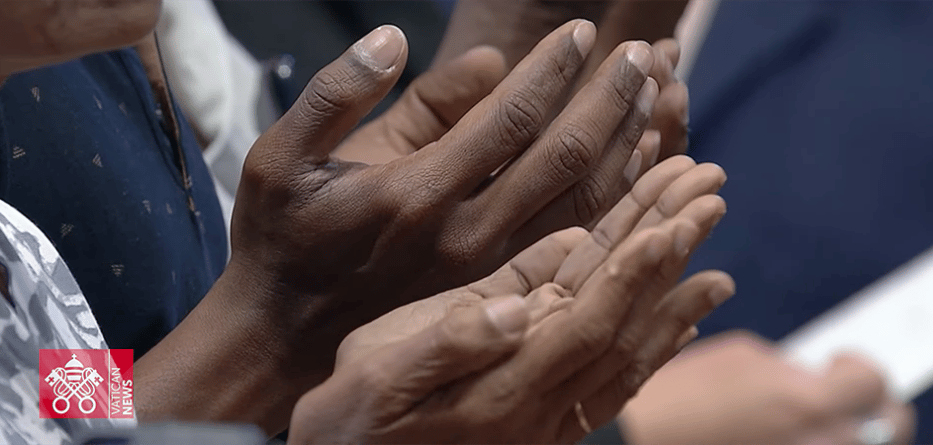Spiritual wisdom teaches us that “we die as we have lived.” Our entire lives are blessings in themselves, even as they are also opportunities for us to prepare well for a holy death and to live eternally in God’s presence.
The Lord Jesus was a man of prayer. Everything he did was surrounded by a closeness to the Father. He also took specific moments and went to specific places to pray. He had a prayerful spirit and was a man of set prayer times. As such, it shouldn’t surprise us that the Lord would rely on prayer during his passion and death. As he lived in prayer, so his death would be encompassed by prayer.
The Catechism of the Catholic Church explains: “When the hour had come for him to fulfill the Father’s plan of love, Jesus allows a glimpse of the boundless depth of his filial prayer, not only before he freely delivered himself up (‘Abba . . . not my will, but yours.’), but even in his last words on the Cross, where prayer and the gift of self are but one: ‘Father, forgive them, for they know not what they do,’ ‘Truly, I say to you, today you will be with me in Paradise,; ‘Woman, behold your son’ – ‘Behold your mother,’ ‘I thirst,’ ‘My God, My God, why have you forsaken me?’ ‘It is finished’; ‘Father, into your hands I commit my spirit!’ until the ‘loud cry’ as he expires, giving up his spirit.”
The entire passion of the Lord Jesus was its own school of prayer. Every moment of the Lord’s sufferings – in what is recorded in the gospel books and what is not – is marked by his utter reliance, confidence, and extreme love he bears for the Father. Such a closeness is expressed by his consistent offerings of prayer and supplications to the Father. The Lord knows that he is not alone. The Father is with him.
The Catechism makes the provocative point that in the Lord’s passion, “prayer and the gift of self are but one.” The saving oblation of the Lord’s sacrifice and his life of prayer merge into one and become a single sacrificial offering to the Father.
This profound observation is a summons to all the children of God to follow the Lord’s way in similar fashion. In our lives, as we undergo sufferings, heartaches, betrayals, rejection, and other areas of darkness, we are to cooperate with grace and offer these inflictions of a fallen world to God and such an oblation should be marked by prayer.
Do we pray in the multiple hurts and harms of our lives? When we’re suffering, do we draw close to God in prayer? Does our oblation consist of the two-fold sacrifice of a gift of self and of prayer?
Prayer is not an accidental portion of life. It is not something that’s an “extra” to the intricacies and turmoil of life. The Lord shows us that prayer should be the most natural response of a child of God who is hurt and suffering.
In the throes of life, however, pain wants to close us in on itself. Sufferings want to dominate our lives. The hurt we undergo wants to be the lord and center of everything we do. The fallenness of the world desires to encompass us and lead us to forget about God, feel abandoned or alone, and think we have to solve things ourselves and rely on our own strengths and talents to work our way through pain and suffering. At times, we become suppliants to these lies, especially when they involve on-going pain or the sufferings of our loved ones.
The Lord Jesus, however, breaks through this darkness. He offers us a other way, his way, the way of love. We are as close to God in our lives and in our sufferings as we choose to be. God is always present, always ready to embrace us, and always ready to assist us and strengthen us by his grace.
The Lord Jesus shows us by his holy life how we are to pray. By living a life of prayer, we can also see his witness and follow him through the sufferings and struggles of this world. Like him, we can suffer (and die) as a people of prayer since we have first labored and sought to live faithfully as a people of prayer throughout our lives.












